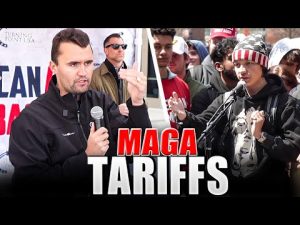In a recent press encounter, former President Donald Trump faced some rather absurd inquiries from members of the media regarding whether he would engage in preemptive strikes on Iran’s nuclear facilities. His response was as sharp as ever, illustrating not only his straightforward demeanor but also exposing the often puzzling nature of media questioning in critical national security discussions. It is essential to examine how his reactions highlight a fundamental difference in approach between conservative and liberal philosophies on foreign policy.
Donald Trump’s refusal to disclose his intentions can be boiled down to common sense. When asked if he would launch a preemptive strike, Trump rightly stated that revealing such information would be imprudent. A preemptive strike is a complex decision that involves many layers of strategy and intelligence. It’s not a decision that anyone should casually announce. Informing the public about potential military actions beforehand could compromise national security and undermine the element of surprise against adversaries.
This approach starkly contrasts with what many suspect would be a response from President Joe Biden. One can almost imagine a scenario where Biden, in attempting to please both sides and maintain diplomatic decorum, would fumble the question, perhaps talking about Israel and further complicating matters with vague remarks about international treaties. The difference in responses serves to highlight a critical fault line in how these leaders handle foreign policy. While one leader embraces strategic ambiguity, the other tends to lean towards openness, even to the detriment of national interests.
Furthermore, the media’s fixation on such questions reveals an ignorance of the complexities involved in international relations. It’s almost comical how reporters expect a straightforward answer to what is essentially a game of chess against a dangerous opponent. In reality, effective foreign policy requires a nuanced understanding of evolving threats, alliances, and the potential consequences of any action taken. Trump’s response could serve as a master class in how to approach these situations with the seriousness and gravity they deserve.
In this age of global tension and rapid communication, understanding the stakes is crucial. Trump’s focus on not revealing his hand speaks to a broader conservative belief in strong national defense and strategic planning. Conservatives tend to prioritize national interests above all, making calculated decisions rather than populist gestures driven by media soundbites. It is this philosophy that demands respect for the process of foreign policy-making, a process that requires deliberation rather than impulsive reactions to media inquiries.
In conclusion, Trump’s reaction stands as a clear reminder of the importance of maintaining strategic silence regarding military operations. The question from the media, while seemingly innocuous, reveals a fundamental misunderstanding of how serious geopolitical considerations are managed. As political discourse continues to evolve, one can only hope for a greater appreciation of fact over sensationalism—because in matters of national security, few things are more dangerous than careless speculation. If nothing else, media members might want to consider whether their questions are inviting clarity or merely adding to the noise.







